Powering the Nation’s Digital Transformation
By MYBRANDBOOK
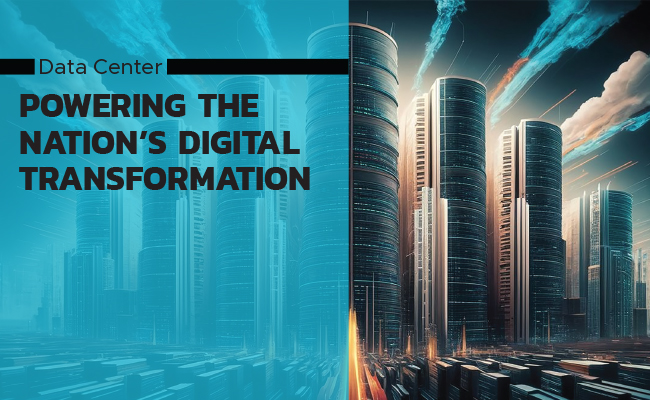
India’s data center industry saw unprecedented growth in 2023, driven by the increasing demand for digital services, government initiatives, and substantial investments from global and local players. The industry’s expansion reflects the country’s digital transformation, making it one of the most dynamic markets in the global data center landscape. The combined capacity is projected to surpass 1,300 MW by the end of 2024. This explosive growth reflects the country’s burgeoning demand for data storage and processing infrastructure, necessitated by the digitalization wave sweeping across various sectors including finance, e-commerce, entertainment, and public services.
India is currently the 13th largest data center market globally, with 138 data centers. According to research by real estate services firm ANAROCK-Binswanger, an additional 45 data centers—spanning 13 million square feet and offering 1,015 MW of capacity—are anticipated to be established by the end of 2025. Among the cities, Mumbai stands out as the leading data center hub, while Chennai, benefiting from its undersea cable network, holds the second position. Delhi, Bengaluru, Hyderabad, and Pune are also emerging as significant data center locations.
Data Center Capacity and Market Growth
The Indian data center market has experienced significant growth, reaching an estimated value of over $5 billion in 2023. This surge is attributed to the increasing adoption of cloud services, the proliferation of internet usage, and the growing need for data storage and management solutions. According to industry reports, the market is projected to continue its upward trajectory, potentially doubling by 2026.
As of 2024, India’s data center capacity is estimated to be around 950 MW, excluding major player China, according to CBRE South Asia. This positions India as a leader among Asia Pacific countries. Industry reports suggest a promising growth trajectory, with projections of doubling capacity to 1,800 MW by 2026.
The “From Bytes to Business: India Data Centre Market Powering Progress in 2023” report by CBRE South Asia highlights that India’s DC capacity has doubled over the past four to five years, reaching around 880 MW by mid-2023. It is expected to further increase to approximately 1,048 MW by the end of 2023. In the first half of 2023, the DC stock in India’s top seven cities spanned about 13 million square feet, with Mumbai, Chennai, Bengaluru, and Delhi-NCR accounting for about 87 percent of this capacity. The overall DC occupancy levels were around 75-80 percent during this period, with expectations of further improvement by the year’s end.
This rapid expansion is driven by several factors:
Cloud Adoption: The Indian enterprises are increasingly embracing cloud computing solutions, requiring data centers to house and manage their data infrastructure.
Government Initiatives: The Indian government is actively promoting digitalization through initiatives like “Digital India” and “Make in India.” This fosters a supportive environment for data center growth.
E-commerce Boom: The e-commerce sector in India is experiencing phenomenal growth, generating massive amounts of data that require secure and reliable storage solutions.
Demand for AI and Big Data: The growing adoption of Artificial Intelligence (AI) and Big Data analytics necessitates sophisticated data center infrastructure to power these technologies.
Key Markets: Mumbai, Chennai, and Beyond
Mumbai remains the most significant DC market in India, accounting for over half of the total stock (52 percent) as of 2023. The city is set to lead in supply additions, with 46 percent of the upcoming 500 MW capacity expected by the end of 2024. Factors such as multiple cable landing stations, supportive government initiatives, and strong entertainment and finance industries have made Mumbai an attractive location for BFSI, media, cloud, and OTT companies.
Chennai has also emerged as a vital tier-I DC market, holding 21 percent of the total stock in the top seven cities as of 2023. It is projected to maintain this share with the upcoming 500 MW capacity expected by 2024. Bengaluru and Delhi-NCR each accounted for 10 percent of the DC stock until 2023.
Major Investments and Developments
Several major investments marked 2023 as a pivotal year for the Indian data center industry. Global tech giants like Amazon Web Services (AWS), Google Cloud, and Microsoft Azure expanded their footprints, investing heavily in new data center facilities across the country.
AWS announced the opening of multiple new data centers in Mumbai and Hyderabad, enhancing its capacity to meet the growing demand for cloud services. Each of these data centers boasts a capacity of 100 MW, positioning them as significant players in the region’s digital infrastructure.
Google Cloud unveiled plans for its second cloud region in Delhi, aimed at providing enhanced services and reliability to its customers in India. This new region includes three data centers, each with a capacity of 60 MW, ensuring robust support for Google’s expanding customer base.
Microsoft Azure continued its aggressive expansion, launching new data centers in Pune and Chennai. These facilities, with a combined capacity of 150 MW, are part of Microsoft’s broader strategy to capitalize on India’s burgeoning digital economy and cater to the needs of businesses migrating to cloud-based solutions.
Domestic Players and Initiatives
Domestic players have also played a crucial role in the industry’s growth. Reliance Jio and Adani Enterprises have made significant strides in establishing large-scale data center facilities. Reliance Jio’s data centers in Maharashtra and Gujarat are set to become major hubs for digital services, supporting its extensive telecom and digital services network.
Adani Enterprises announced a strategic partnership with EdgeConneX to develop data centers across India. This collaboration aims to build hyper-scale data centers that will cater to the needs of hyperscalers and enterprises, driving further growth in the sector.
Government Support and Policies
The Indian government has been instrumental in fostering the growth of the data center industry through supportive policies and initiatives. The introduction of the National Data Center Policy in 2022 laid the groundwork for attracting investments and promoting the development of data centers.
The policy offers various incentives, including tax benefits, infrastructure support, and streamlined regulatory processes. These measures have significantly reduced the barriers to entry for investors and encouraged the establishment of data centers across the country.
Top 10 data center companies in India in 2023
Tata Communications
Tata Communications, part of the Tata Group, provides data center solutions like cloud hosting and disaster recovery. It holds a 26% stake in Singapore’s ST Telemedia GDC, which includes 300 MW of data centers, with 100 MW under construction. This acquisition enhances Tata Communications’ presence in the co-location market in India and Asia, offering managed services including IP, cloud enablement, and unified communications. Their 14 data centers in India and three in Singapore serve a diverse customer base, including blue-chip enterprises, e-commerce platforms, and global corporations.
CtrlS Datacenters
Hyderabad-based CtrlS operates 12 data centers with a 234MW capacity across seven cities: Mumbai, Hyderabad, Chennai, Bangalore, Noida, Lucknow, and Patna. The company plans to invest $2 billion over six years to add 350MW across new and existing hyperscale and edge data centers in India and Southeast Asia. CtrlS has entered the Thailand market through a collaboration with National Telecom and aims to expand to the Middle East. Chairman Sridhar Pinnapureddy emphasized investments in advanced cooling, power management, and infrastructure design due to the surge in AI and cloud adoption.
Sify Technologies
Sify Technologies is a major player in hosting, cloud computing, and colocation in India. Their data centers, spread across major cities, offer enhanced connectivity and redundancy. With over 100 MW of current capacity, Sify focuses on renewable energy, providing green data centers with no greenhouse gas emissions.
NTT GDC India (formerly Netmagic)
Japan’s NTT Communications acquired a 74% stake in Mumbai-based Netmagic Solutions. Now known as NTT Global Data Centres and Cloud Infrastructure India, the company invested Rs 2,700 crore last year and is in the midst of a $400 million capex program. It operates 16 data centers across 13 campuses in India, with a capacity expected to grow from 205 MW to 349 MW by year-end.
Web Werks India
Web Werks operates three Tier 3, carrier-neutral data centers in Mumbai, Pune, and Delhi NCR, with a combined footprint of 225,000 square feet. In a joint venture with Iron Mountain, Web Werks plans to invest $150 million over two years to expand in cities like Chennai, where it acquired land for two new data centers. The company aims to increase its total capacity in India to 200MW from 40MW.
ESDS Software Solutions
Founded in 2005, ESDS provides data storage, managed cloud solutions, virtualization, and disaster recovery hosting, with strong technical support. Their Navi Mumbai data center offers 5MW of IT Load, prioritizing long-term customer relationships.
NxtGen Datacenter
Established in 2012, NxtGen offers cloud, CDN, colocation, and disaster recovery services. Operating four data centers in Bangalore, Ahmedabad, Faridabad, and Mumbai, NxtGen plans to develop new facilities in Chennai, Hyderabad, and Visakhapatnam. The company aims to invest ₹1,300 crore to establish 10 additional data centers and 236 edge centers across India.
AdaniConnex
Launched in 2021 as a joint venture with EdgeConneX, AdaniConnex is developing hyperscale data centers in India, starting with Chennai, Navi Mumbai, Noida, Visakhapatnam, and Hyderabad. The company is building a 67 MW capacity data center in Kolkata’s Bengal Silicon Valley tech hub and aims to build a 1 GW green data center platform in India.
Airtel Nxtra
Bharti Airtel’s data center arm, Airtel Nxtra, serves 450 customers through 12 data centers and 120 edge data centers, with a total capacity of 200 MW. The company plans to double its capacity to 400MW by 2025, with new facilities in Mumbai, Pune, Kolkata, Bengaluru, Hyderabad, and Delhi.
Yotta Data Services
Yotta Infrastructure, part of the Hiranandani Group, offers hyperscale and colocation data centers. With data center parks in Mumbai and Noida, Yotta plans to expand to new locations, including a 30MW campus in Dhaka, Bangladesh. The company also operates edge data centers in tier-2 and 3 cities like Lucknow, Guwahati, Bhubaneswar, Coimbatore, Indore, Nagpur, Jaipur, and Chandigarh, with plans to build more in the coming year.
Trends and Technological Advancements
Several trends and technological advancements have shaped the data center industry in 2023. The adoption of Edge Computing has gained momentum, driven by the need for real-time data processing and low-latency services. Edge data centers, located closer to end-users, are becoming increasingly popular, providing faster and more efficient data processing capabilities.
Another notable trend is the focus on sustainability and green data centers. With growing concerns about the environmental impact of data centers, companies are investing in renewable energy sources and energy-efficient technologies. Several new data centers in India are being powered by solar and wind energy, reducing their carbon footprint and contributing to sustainable growth.
Challenges and Opportunities
Despite the rapid growth, the industry faces several challenges. The lack of reliable power infrastructure in certain regions poses a significant hurdle. Data centers require a continuous and stable power supply, and any disruptions can impact their operations. However, investments in infrastructure development and the adoption of alternative energy sources are helping mitigate this challenge.
Additionally, data privacy and security remain critical concerns. With the increasing volume of data being processed and stored, ensuring robust security measures is paramount. The implementation of stringent data protection regulations and the adoption of advanced cybersecurity solutions are essential to address these concerns.
The industry also presents numerous opportunities. The rise of 5G technology is expected to further boost the demand for data centers. As 5G networks become more widespread, there will be an exponential increase in data generation, necessitating the expansion of data center capacity to handle the influx.
Outlook for 2024
India’s data center industry is set to experience substantial growth and transformation in 2024, driven by increasing digitalization, cloud adoption, and supportive government policies. Here’s an in-depth look at the outlook for this dynamic sector:
Surge in Data Consumption and Cloud Adoption
The exponential growth in data consumption, fuelled by the proliferation of digital services, smartphones, and internet penetration, is a primary driver for the data center industry. With more businesses migrating to cloud-based solutions, the demand for robust, scalable, and secure data center infrastructure is expected to rise significantly in 2024.
Government Initiatives and Policy Support
The Indian government’s Digital India initiative continues to play a crucial role in promoting the data center industry. Policies such as the Data Center Policy 2021 aim to provide infrastructure status to the sector, making it easier to acquire land, access power, and obtain necessary clearances. The government’s focus on data localization mandates is also expected to boost demand for local data storage facilities.
Increased Investment and Expansion
2024 is likely to witness a surge in investments from both domestic and international players. Major global data center operators like Equinix, Digital Realty, and ST Telemedia, along with Indian giants like Adani, Reliance, and Hiranandani, are expanding their footprint in the country. These investments are directed towards building new data center facilities and enhancing existing ones to meet the growing demand.
Rise of Hyperscale and Edge Data Centers
The demand for hyperscale data centers, which support large-scale cloud services and enterprises, is expected to rise in 2024. These data centers offer high scalability, efficiency, and advanced technologies to manage vast amounts of data. Simultaneously, edge data centers, which bring data processing closer to the source, are gaining traction to support real-time applications and reduce latency.
Focus on Sustainability and Green Data Centers
Sustainability is becoming a key focus area for the data center industry. In 2024, there will be a strong emphasis on developing green data centers that utilize renewable energy sources, efficient cooling technologies, and sustainable practices. Companies are increasingly investing in solar, wind, and other renewable energy projects to power their data centers and reduce their carbon footprint.
Technological Advancements and Innovations
The data center industry in India is embracing cutting-edge technologies such as artificial intelligence (AI), machine learning, automation, and advanced cooling solutions. These innovations are aimed at improving operational efficiency, enhancing security, and reducing energy consumption. The adoption of AI and automation for predictive maintenance and resource optimization is expected to be a significant trend in 2024.
Expansion in Tier 2 and Tier 3 Cities
While major cities like Mumbai, Delhi, and Bengaluru continue to be the primary hubs for data centers, there is a growing trend of establishing facilities in Tier 2 and Tier 3 cities. These regions offer cost advantages, lower latency for regional users, and untapped market potential. This expansion is expected to drive regional economic growth and improve digital infrastructure across the country.
Talent Development and Skill Enhancement
The growth of the data center industry necessitates a skilled workforce. In 2024, there will be a greater emphasis on training and development programs to equip professionals with the necessary technical skills and knowledge. Partnerships between industry players and educational institutions will play a crucial role in nurturing talent and fostering innovation.
| Top 10 Data Centers Companies in India |
| Name | Established In | Headquarter | No of data centers | Capacity(MW) |
| Tata Communications | 1986 | Mumbai | 44 | 300+ |
| CtrlS | 2007 | Hyderabad | 17 | 235 |
| NTT GDC | 2016 | Mumbai | 16 | 205 |
| Nxtra by Airtel | 2013 | Mumbai | 12 | 200 |
| Sify | 1995 | Chennai | 11 | 100 |
| Web Werks | 1996 | Navi Mumbai | 6 | 40 |
| ESDS | 2005 | Mumbai | 5 | 50 |
| NxtGen | 2012 | Bengaluru | 4 | 50 |
| Yotta | 2016 | Mumbai | 2 | 250 |
| Adani Connex | 2021 | Mumbai | 1 | 250 |


Legal Battle Over IT Act Intensifies Amid Musk’s India Plans
The outcome of the legal dispute between X Corp and the Indian government c...

Wipro inks 10-year deal with Phoenix Group's ReAssure UK worth
The agreement, executed through Wipro and its 100% subsidiary,...

Centre announces that DPDP Rules nearing Finalisation by April
The government seeks to refine the rules for robust data protection, ensuri...

Home Ministry cracks down on PoS agents in digital arrest scam
Digital arrest scams are a growing cybercrime where victims are coerced or ...

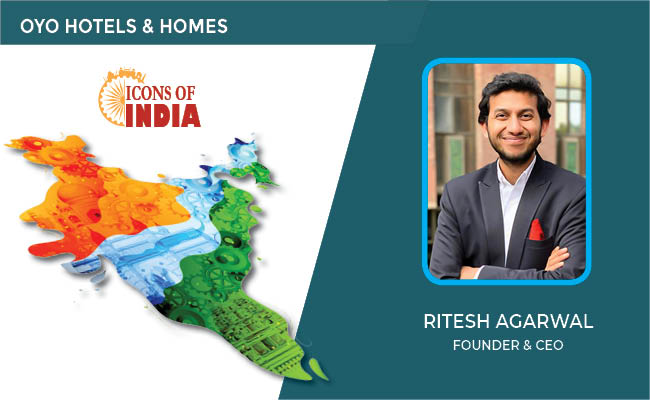
ICONS OF INDIA : RITESH AGARWAL
Ritesh Agarwal is an Indian billionaire entrepreneur and the founder a...
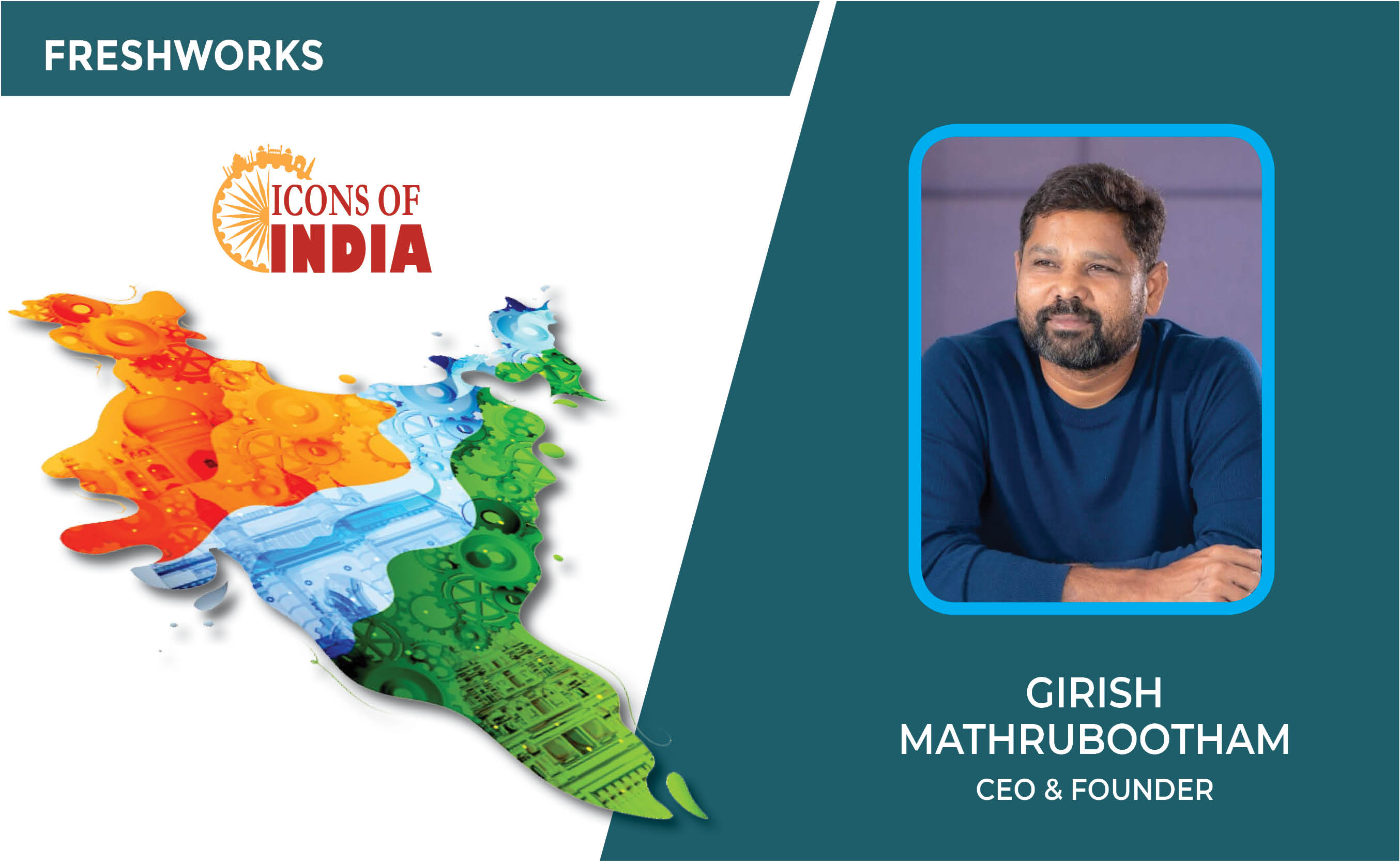
Icons Of India : Girish Mathrubootham
Girish Mathrubootham is the Founder of Freshworks (previously known ...

Icons Of India : GAUTAM ADANI CHAIRMAN ADANI GROUP
Gautam Adani is the Founder and Chairman of the Adani Group, which ran...


EESL - Energy Efficiency Services Limited
EESL is uniquely positioned in India’s energy sector to address ener...
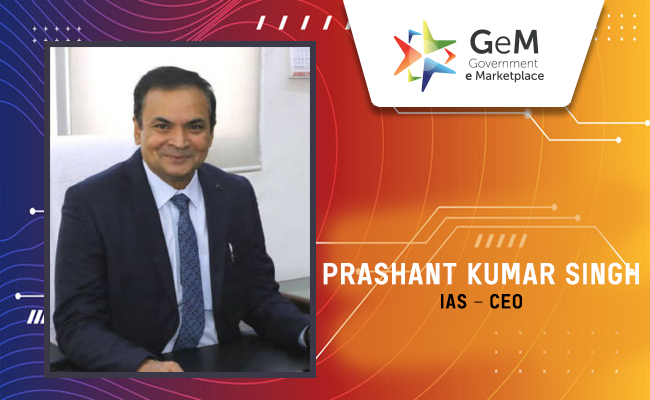
GeM - Government e Marketplace
GeM is to facilitate the procurement of goods and services by various ...
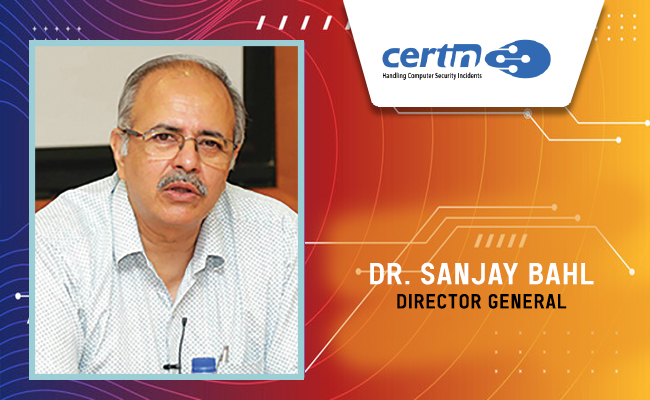
CERT-IN - Indian Computer Emergency Response Team
CERT-In is a national nodal agency for responding to computer security...

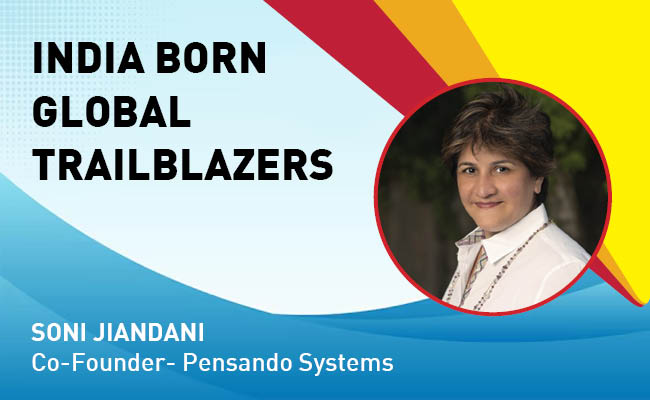
Indian Tech Talent Excelling The Tech World - Soni Jiandani, Co-Founder- Pensando Systems
Soni Jiandani, Co-Founder of Pensando Systems, is a tech visionary ren...
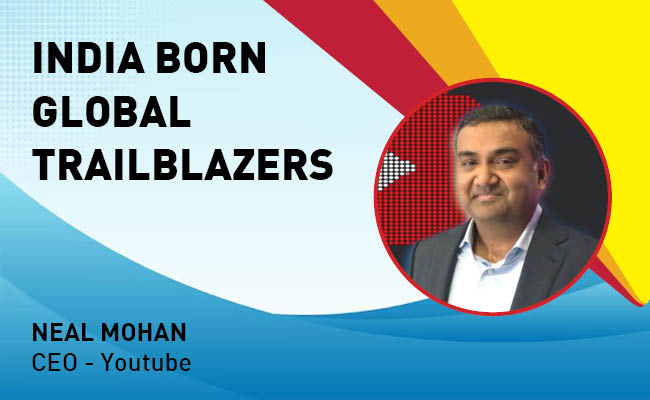
Indian Tech Talent Excelling The Tech World - NEAL MOHAN, CEO - Youtube
Neal Mohan, the CEO of YouTube, has a bold vision for the platform’s...

Indian Tech Talent Excelling The Tech World - NIKESH ARORA, Chairman CEO - Palo Alto Networks
Nikesh Arora, the Chairman and CEO of Palo Alto Networks, is steering ...
 of images belongs to the respective copyright holders
of images belongs to the respective copyright holders